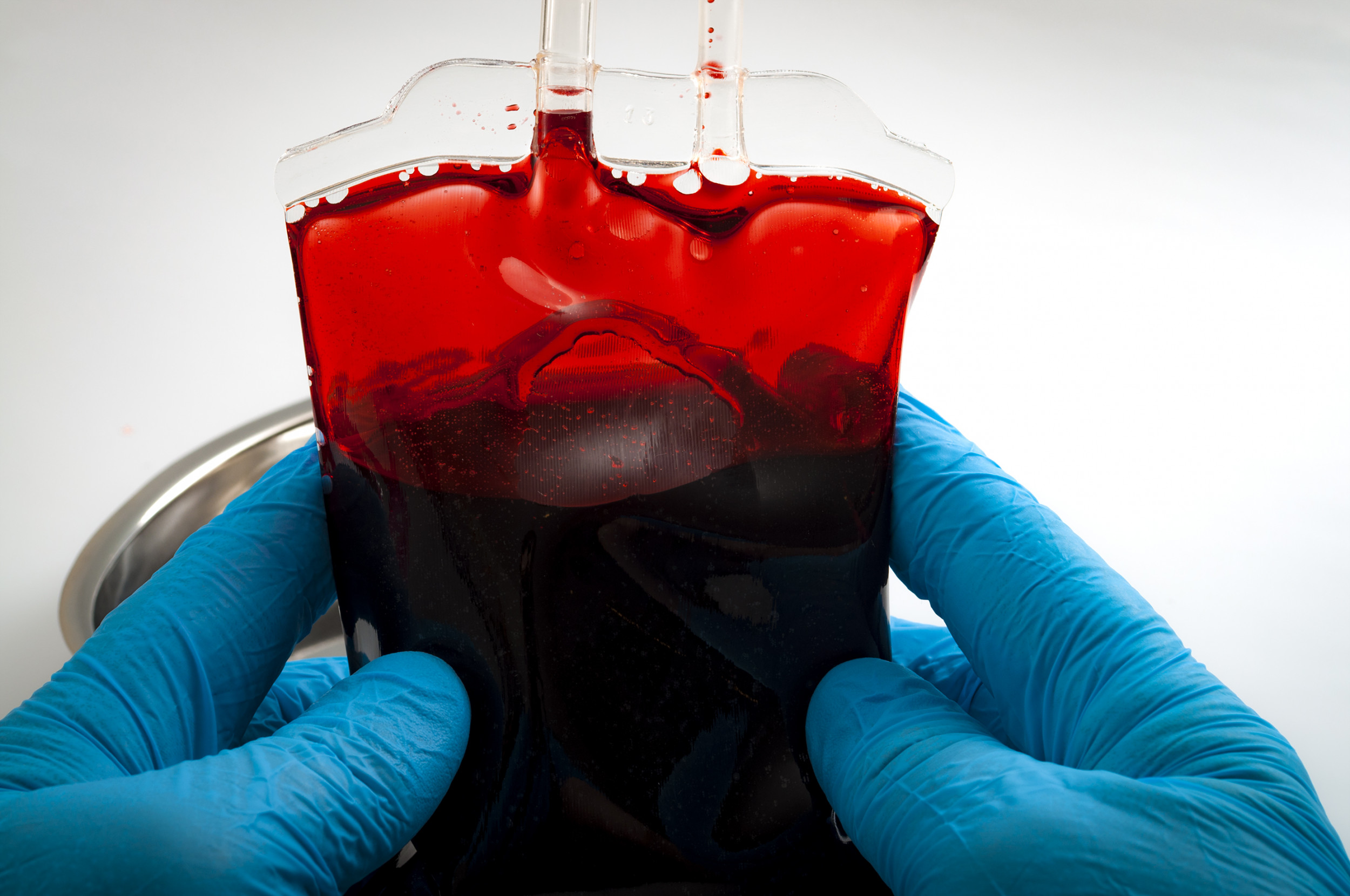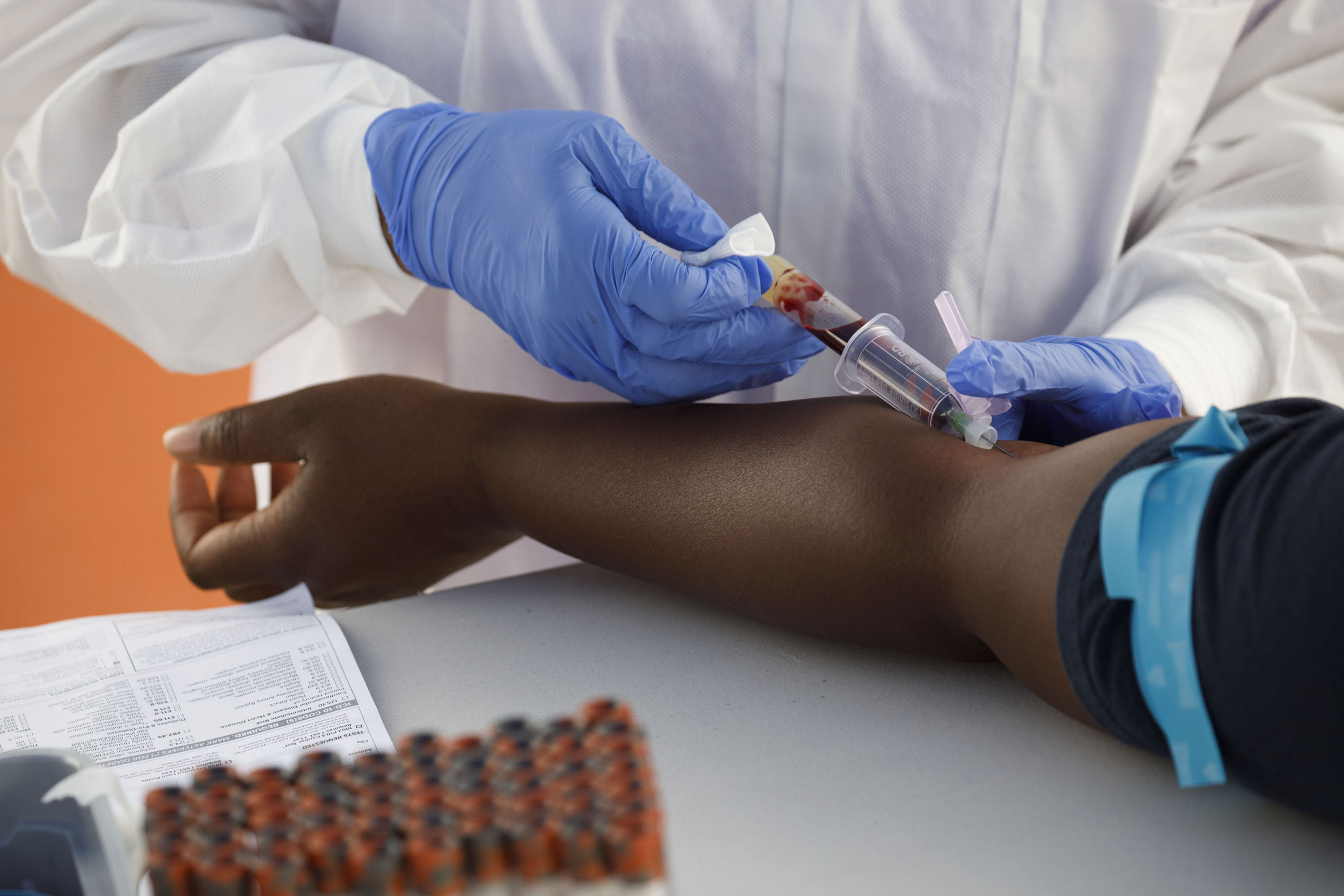
"The enzyme helps determine the blood group of an individual and our study has linked it with both risk of hospitalisation and the need of respiratory support or death," said study coauthor Christopher Hubel from King's College London. Taken together with previous research showing that the proportion of group A is higher in COVID-19 positive individuals, this suggests blood group A is candidate for follow-up studies, they said. This supports previous findings around the association of blood group with higher likelihood of death, the researchers said. The proportion of patients with type A blood in the COVID-19 group was significantly higher than that in the control group (36.90 vs. We included both genders and people who are. The analysis identified that an enzyme (ABO) that determines blood group was causally associated with both an increased risk of hospitalisation and a requirement for respiratory support. It included all hospitalized confirmed COVID-19 patients in Qatif central hospital, Eastern province, Saudi Arabia. "Honing in on this group of proteins is a vital first step in discovering potentially valuable targets for development of new treatments."

The non-O blood groups thus become a preferred target for the virus, whereas blood group O(H) individuals, lacking the A/B phenotype-determining enzymes and binding the virus alone by hybrid H-type antigen formation, have the least molecular contact with the virus and maintain the critical anti-A and anti-B isoagglutinin activities, exerted by the ancestral IgM, which is considered the humoral spearhead of innate immunity."We have used a purely genetic approach to investigate a large number of blood proteins and established that a handful have causal links to the development of severe COVID-19," said study co-first author Alish Palmos from King's College London. In the non-O blood groups, which have developed from the H-type antigen, these IgM activities are downregulated by phenotypic glycosylation, while adaptive immunoglobulins might arise in response to the hybrid A and B blood group structures, bonds between autologous carbohydrates and foreign peptides, suggesting the exertion of autoreactivity.

The virus may, by mimicking the synthetic pathways of the ABO(H) blood groups, bind to the cell surfaces of the blood group O(H) by formation of a hybrid H-type antigen as the potential precursor of hybrid non-O blood groups, which does not affect the highly anti- glycan aggressive anti-A and anti-B isoagglutinin activities, exerted by the germline-encoded nonimmune immunoglobulin M ( IgM).

In humans, this intermediate structure will hypothetically be replaced by ABO(H) blood group-specific, mucin-type structures, in the case of infection hybrid epitopes, implicating the phenotypically glycosidic accommodation of plasma proteins. The resulting hybrid, serologically A-like/Tn (T nouvelle) structure potentially acts as a host-pathogen functional molecular bridge. Studies have shown association of blood groups A and O with higher and lower odds for coronavirus disease 2019 positivity respectively. Depending on blood collection facility regulations and demand for Covid-19 convalescent plasma, those who have recovered from Covid-19 are eligible to donate convalescent plasma. Their findings, published in the Annals of Hematology, dispel previous reports that suggested a correlation between certain blood types and COVID-19. Background: ABO as well as Rh blood group systems are associated with many diseases including cancerous, infectious, non-infectious, bacterial as well as viral diseases. While the angiotensin converting enzyme 2 (ACE2) protein is defined as the primary severe acute respiratory syndrome coronavirus 2 ( SARS-CoV-2) receptor, the viral serine molecule might be mobilized by the host's transmembrane protease serine subtype 2 (TMPRSS2) enzyme from the viral spike (S) protein and hijack the host's N-acetyl-D-galactosamine (GalNAc) metabolism. Blood type is not associated with a severe worsening of symptoms in people who have tested positive for COVID-19, report Harvard Medical School researchers based at Massachusetts General Hospital. In a study published back in March 2020, researchers in China found that blood group A was associated with a higher risk for acquiring COVID-19 compared with non-A blood groups, whereas blood group O was associated with a lower risk for the infection compared with non-O blood groups.


 0 kommentar(er)
0 kommentar(er)
